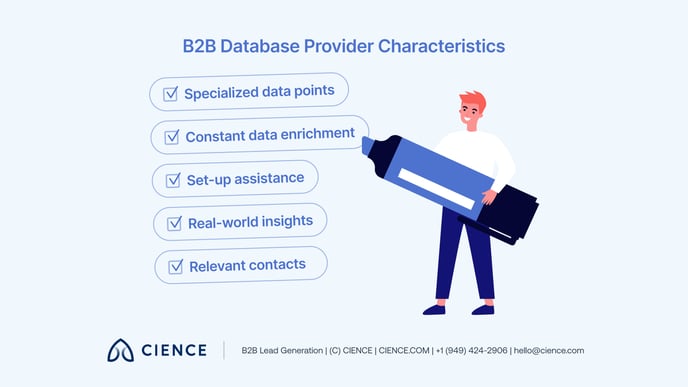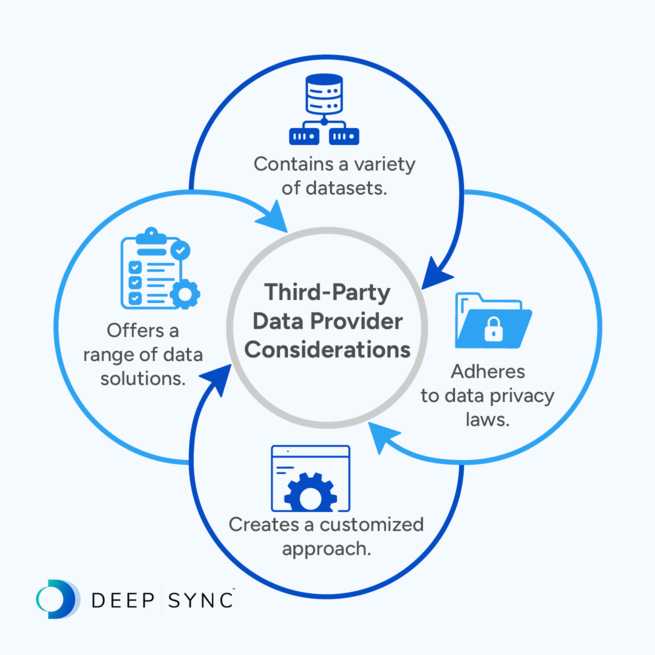Key Functions to Seek When Picking a Database copyright
Choosing a data source provider is a crucial decision that can dramatically influence your company's data and operations administration approach. Amongst the vital features to think about are scalability alternatives, which ensure that your system can adapt to expanding demands. Security actions, performance metrics, and consumer support additionally play crucial duties in this evaluation process. As you evaluate these variables, it ends up being evident that the choice is not simply about performance yet likewise concerning aligning with your long-term vision. What various other considerations might affect this crucial decision?
Scalability Options
When choosing a database company, comprehending scalability alternatives is essential to ensuring that the chosen solution can fit future development. Scalability describes the ability of a database system to broaden its capacity and performance in action to increased need. There are 2 main kinds of scalability: upright and straight.
Vertical scalability, or "scaling up," includes enhancing a single web server's sources, such as CPU, RAM, or storage. This technique can be uncomplicated and affordable for smaller applications yet may get to a limitation where additionally upgrades are not practical or too costly.
Horizontal scalability, or "scaling out," entails adding extra web servers to disperse the lots. This strategy permits better flexibility and can suit substantial increases in information quantity and user website traffic (database provider). It is especially helpful for cloud-based database solutions that can dynamically designate resources based on demand

Protection Measures

When assessing safety steps, take into consideration the execution of encryption procedures (database provider). Data-at-rest and data-in-transit file encryption are crucial to make sure that sensitive info stays protected, even in case of a security breach. In addition, search for carriers that provide strong verification devices, such as multi-factor verification (MFA), to further boost accessibility control
Normal safety audits and compliance with sector standards, such as GDPR or HIPAA, are a sign of a service provider's dedication to data security. Furthermore, ask about their case feedback plan; a robust strategy can lessen the effect of any kind of prospective safety incident.
Efficiency Metrics
Examining efficiency metrics is crucial for companies to ensure that their picked database supplier fulfills operational requirements. Trick performance metrics consist of action time, scalability, and throughput, which jointly establish the effectiveness of data source operations under varying tons.
Feedback time is important, as it mirrors how rapidly the database can process questions and return results. Organizations ought to try to find metrics that show ordinary response times throughout top and off-peak hours. Throughput, commonly gauged in purchases per second (TPS), gives understanding into the database's ability to take care of high volumes of requests without performance destruction.
Scalability evaluates the database's ability to expand with the company's requirements. A durable data source supplier must show straight and vertical scaling abilities, permitting smooth adjustments as needs fluctuate. In addition, understanding latency, specifically in dispersed systems, can help organizations evaluate the responsiveness of the data source across different geographical locations.
Client Support
Trusted customer assistance is a foundation of effective data source administration, giving organizations with the aid required to optimize and fix issues efficiency. When choosing a database company, assessing the degree of client support they provide is vital. A robust assistance system should consist of several networks of communication, such as phone, e-mail, and live chat, ensuring that users can access assistance whenever they require it.
Furthermore, responsive support teams that are available 24/7 substantially improve the dependability of the database service. Motivate response times and efficient resolution of issues can dramatically minimize downtime and boost overall performance. It is also beneficial to take into consideration the accessibility of committed assistance personnel, who can provide tailored support based upon an organization's details requirements.
Pricing Structure
When thinking about a database supplier, the prices framework is a critical aspect that can significantly influence an organization's budget plan and general approach. A versatile and clear prices version is crucial for straightening the database sets you back with business demands - database provider. Organizations needs to assess whether the rates is based upon usage, per individual, or a level rate, as each model can produce different monetary effects with time
It is essential to evaluate any additional costs related to the supplier's services, such as data storage fees, transaction costs, and assistance over here costs. Some service providers might supply tiered prices, allowing scalability as the organization expands, while others could enforce strict restrictions that could come to be pricey as data requirements raise.
Additionally, companies must take into consideration the long-lasting value of the data source service. While lower first prices can be appealing, they may not make up future upgrades, upkeep charges, or combination costs. Performing a thorough cost-benefit evaluation will help determine the most appropriate pricing framework that stabilizes scalability, performance, and support, eventually ensuring that the chosen data source provider straightens with the organization's financial and functional objectives.
Final Thought
In verdict, selecting a database company necessitates cautious factor to consider of various essential functions. Reviewing performance metrics makes it possible for the identification of important source effective data sources, and accessible customer support boosts the total individual experience.
Choosing a data source supplier is a critical decision that can considerably affect your company's information and procedures management method.When selecting a database service provider, recognizing scalability choices is critical to guaranteeing that the selected remedy can suit future growth. When choosing a data source company, examining the level of client assistance they offer is vital.When considering a database service provider, the prices structure is an essential variable that can considerably affect an organization's spending plan and total strategy. Carrying out a detailed cost-benefit evaluation will certainly aid recognize the most appropriate rates structure that balances support, scalability, and efficiency, eventually making certain that the chosen database company lines up with the organization's functional and economic goals.